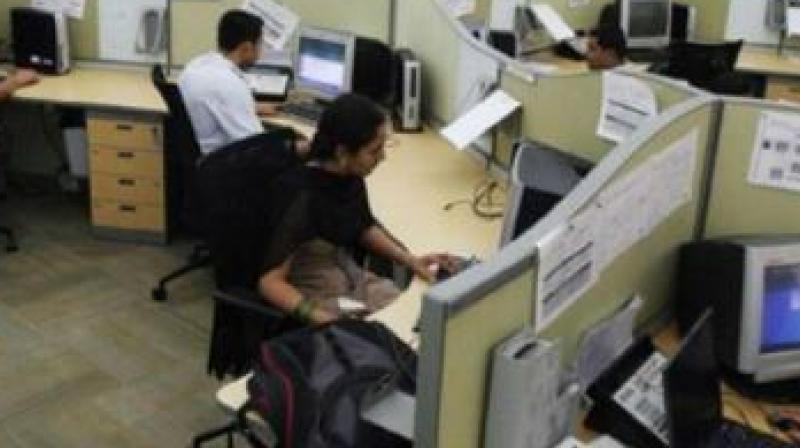Nativity row: Salary for staff sans work

Hyderabad: As many as 770 employees of power utilities in Telangana, including engineers, senior accountants and accountants, have been drawing salaries without doing any work because the governments of AP and Telangana have not been able to settle disputes arising out of the nativity/residence of these employees and allotting them to one state or the other. The average salary of an employee working in the power utilities is said to be between Rs 75,000 and Rs 85,000 a month.
Employees of state universities who have moved the courts against their choice of allocation are also drawing salaries without working.
As per Section 77 of the AP Reorganisation Act 2014, the state governments of AP and Telangana have to allow employees decide on which state they would like to opt for before making the final allocation between the two states.
Accordingly, both state governments sought opti-ons from their employees, but surprisingly, both governments rejected the options given by the employees in a majority of cases and made allotments against the choice of the employees.
The state governments’ allotments were based on the nativity/ residence of the employees, though there is no such provision under the 2014 Act. This has resulted in a large number of employees moving the High Court and getting a stay on allotments.
Dr K. Lakshmi Narasi-mha, an advocate fighting the case of employees of Southern Power Distribution Company Ltd of Telangana, (TSSPDCL), challenging their allotment to AP, said that in fact there was no need of the allocation process among the power utilities of both states because even prior to bifurcation, these utilities have been divided among the two states.
He said that in 2000, four power distribution companies for four different zones were set up by the erstwhile AP government.
All the employees were subsequently allotted to and working in AP Central Power Discom (APCPDCL). All these companies come under the power sector of both states, AP and Telanga-na. After options from all the employees were taken, they were allocated to APCPDCL.
Subsequently, the name of APCPDCL was changed to Southern Power Distribution Company of Telangana Ltd (TSSPDCL) and then TSSPDCL sought options and allocated the employees to Andhra.
He said that this has resulted in 770 employees of the power utilities moving the High Court against their allocation to AP by the Telangana government.
The High Court, while granting a stay, directed the respondents to continue as employees in their respective places and draw their salaries.
Mr Narasimha said that employees in the engineers' cadre are drawing full salaries without working. They have been denied promotions and will move court again on this matter.
Residence is not a must for job: High court
The Hyderabad High Court, while finding fault with allotment of staff on the basis of residence/nativity, observed that there was no law prescri-bing any requirement of residence within the states of Telangana State or Andhra Pradesh for final allocation to that state.
In the case of Dr T. Bhavana, civil assistant surgeon working in Warang-al district, the court po-inted out that “we have not been shown any law made by Parliament un-der Article 16(3) prescr-ibing any requirement of residence within TS or AP for final allocation to that state. Apart from the Presidential Order, no law which defines who a “local candidate” is, has been brought to our noti-ce. With respect to posts which are not governed by the Presidential Ord-er, the requirement of residence within a parti-cular state is, prima fac-ie, in violation of Article 16(2) of the Constitution.”
P.V. Krishnaiah, the counsel for Dr Bhavana, said the High Court also made it clear that the po-st of Associate Professor is, admittedly, a state-wi-de post to which the AP Public Employment (Or-ganisation of Local Cadr-es and Regulation of Dir-ect Recruitment) Order, 1975 (the “Presidential Order”) does not apply.
He said despite the categorical findings of the High Court, both state governments have not ta-ken any steps to resolve the issue though a lot of public money is being spent on salaries without obtaining services from the employees.

